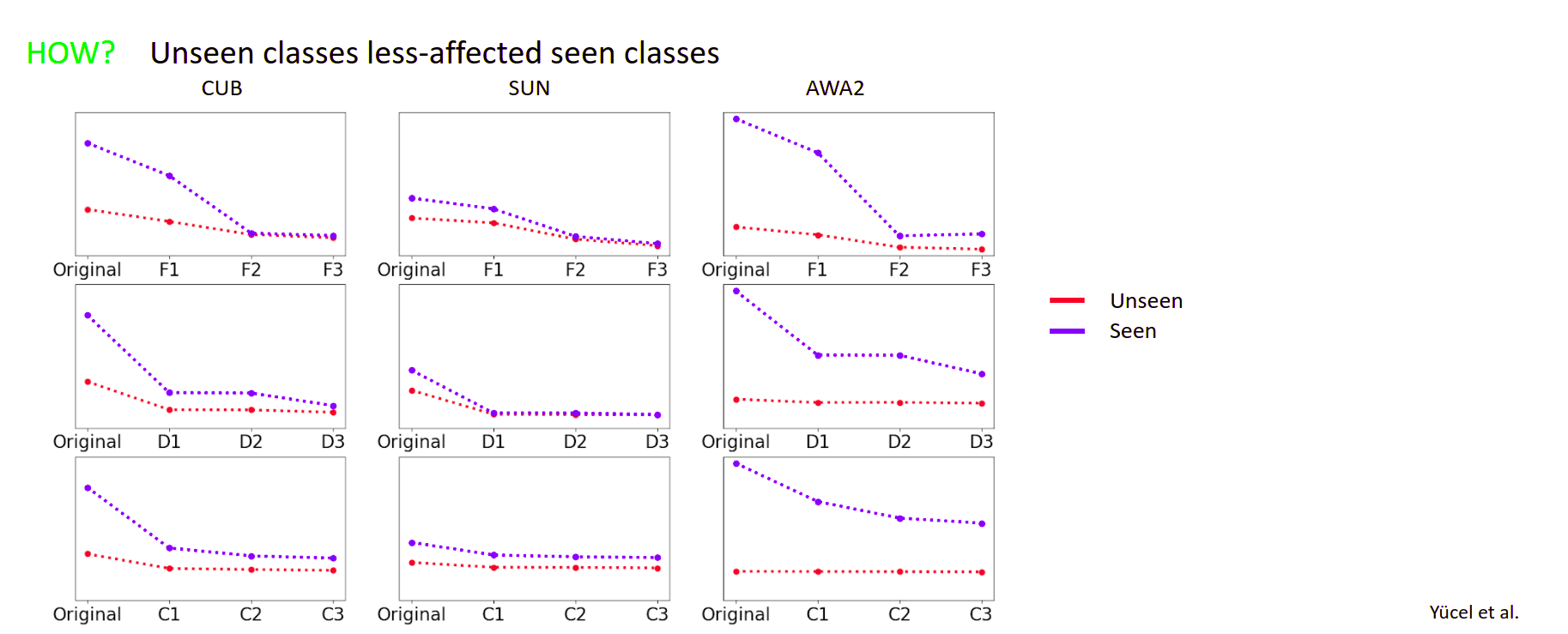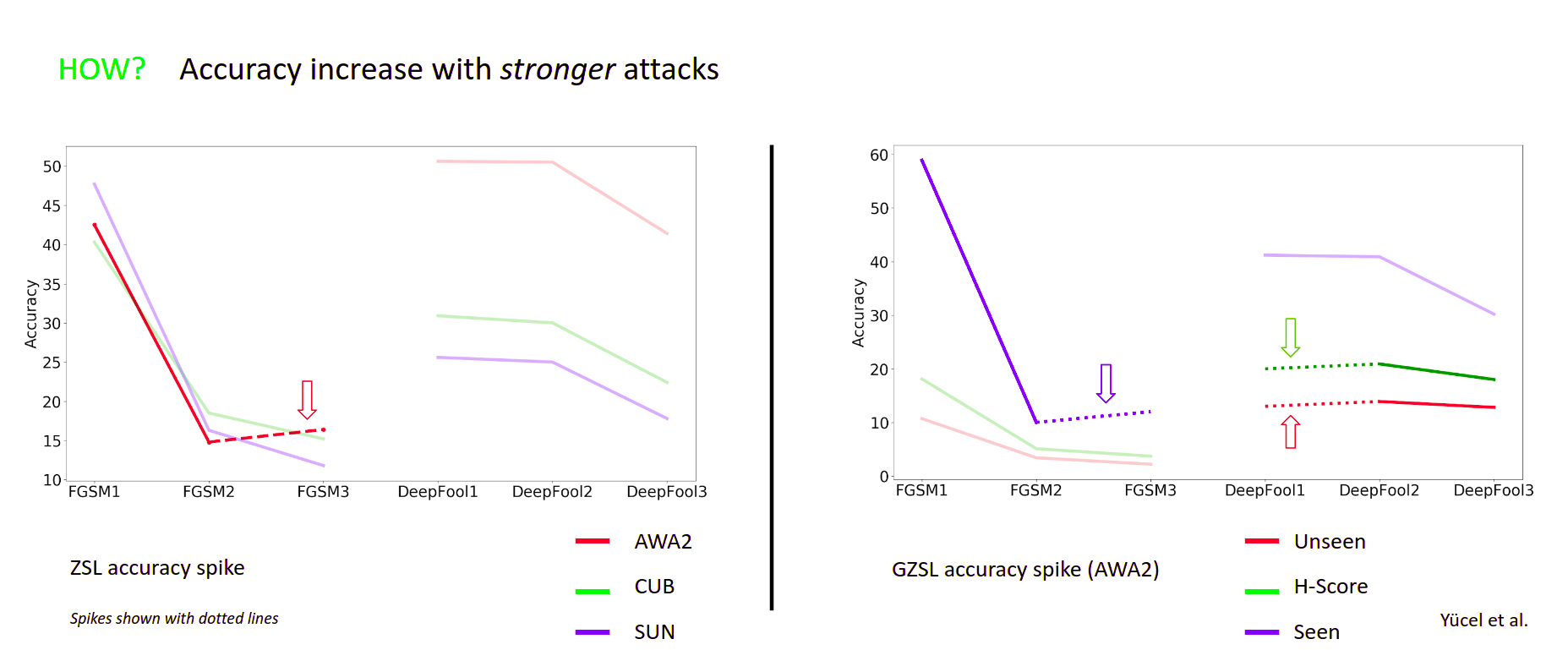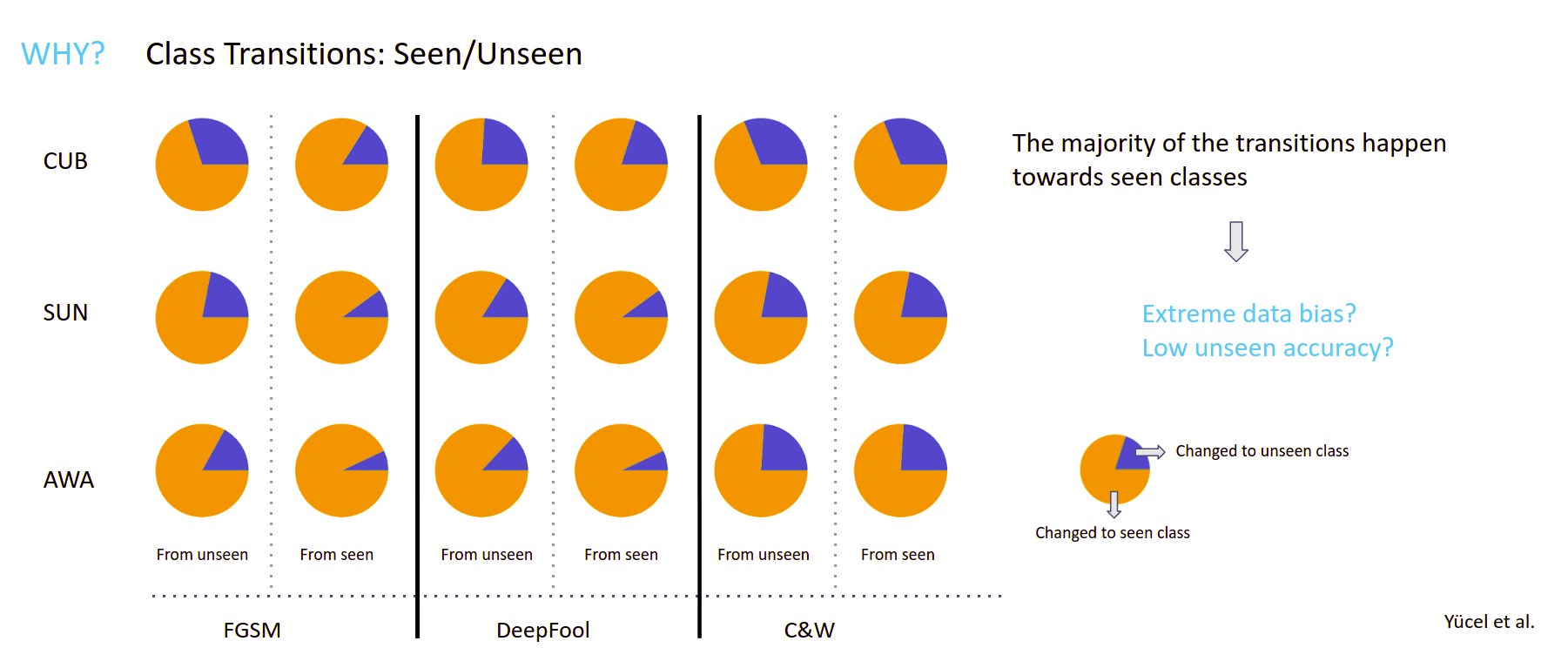This repository contains the PyTorch implementation of our paper A Deep Dive into Adversarial Robustness in Zero-Shot Learning presented at ECCV 2020 Workshop on Adversarial Robustness in the Real World
- The code/paper/datasets of our follow-up work can be found here.
In this paper, we investigate if Zero-Shot Learning models differ from supervised models from an adversarial robustness perspective. We leverage a widely-used ZSL model and subject it to several attacks/defenses, and then analyse our results. Our results show interesting trends, such as
unseen/seen classes being effected disproportionately and attacks increasing the accuracy values Our analysis finds interesting facts, such as a strong trend of class transitions towards seen classes and other notable trends. Refer to our paper for more details.This repository contains the pretrained models (under /model folder) and the code to reproduce our results. The code has been tested with Python 3.7.5, PyTorch 1.3.1, torchvision 0.4.2, Adversarial Robustness Toolbox 1.0.1, numpy 1.17.4, sklearn 0.22, scipy 1.3.2 and PIL 6.2.1 on an Ubuntu 18.04.4 LST machine. In order to run the code, you need to download AWA2, SUN and CUB datasets (raw images). Moreover, for data splits/attributes, download the zip file found here and extract the contents into /data folder.
Code in this repository lets you run attack/defense settings reported in our paper on our pretrained models. Feel free to test with your pretrained models and/or with new attacks/defenses!
After you've downloaded the necessary dataset files, you can run the code by simply
python run.pyFor changing the experimental parameters, refer to params.json file. Details on json file parameters can be found in the code. By default, running run.py looks for a params.json file in the folder. If you want to run the code with another json file, use
python run.py --json_path path_to_jsonIf you find our code or paper useful in your research, please consider citing our paper (will be updated with ECCV bibtex)
@inproceedings{yucel2020eccvw,
title={A Deep Dive into Adversarial Robustness in Zero-Shot Learning},
author={Yucel, Mehmet Kerim and Cinbis, Ramazan Gokberk and Duygulu, Pinar},
booktitle = {ECCV Workshop on Adversarial Robustness in the Real World}
pages={3--21},
year={2020},
organization={Springer}
}
This code base has borrowed several implementations from this link


